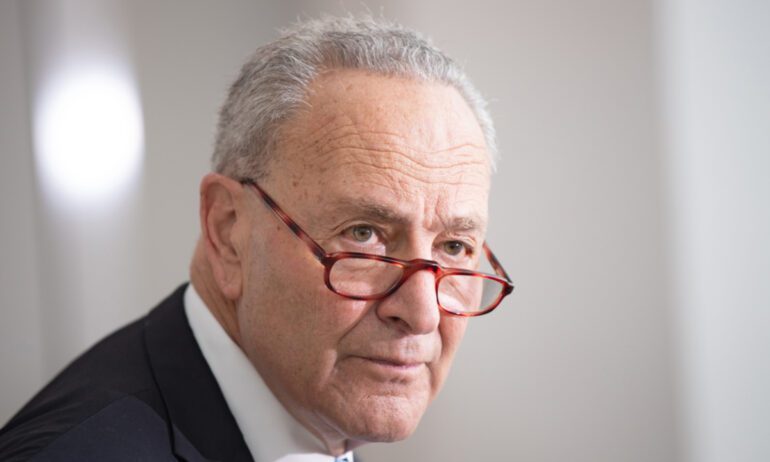TL;DR:
- Senate Majority Leader Chuck Schumer orchestrates a significant AI symposium featuring leading tech CEOs.
- CEOs from Google, Meta, OpenAI, Microsoft, Nvidia, and X (formerly Twitter) to attend.
- Series of nine sessions was planned to address complex AI regulations.
- Topics include worker protection, national security, copyright, and worst-case scenarios.
- Civil society members, including worker advocates and civil rights representatives, participate.
- Closed-door bipartisan discussions emphasize understanding AI intricacies before crafting regulations.
- Schumer’s method prioritizes informed decision-making over hasty legislation.
- Past sessions included classified briefing by national security officials on AI.
Main AI News:
In a strategic convergence of tech magnates and political leadership, Senate Majority Leader Chuck Schumer is orchestrating an eminent assembly of tech CEOs for an upcoming artificial intelligence symposium. Set to transpire on September 13, the event promises to be a pivotal occasion, marked by the participation of luminaries such as Sundar Pichai, CEO of Google, and Eric Schmidt, former Google CEO. Also in attendance will be Mark Zuckerberg, the helmsman of Meta, Sam Altman, CEO of OpenAI, Satya Nadella of Microsoft, Jensen Huang of Nvidia, and Elon Musk, who leads X, the rebranded iteration of Twitter.
Schumer’s masterminding of this event marks the commencement of a larger discourse – a sequence of nine deliberations planned for this fall. These discussions are tailored to confront the intricate quandaries that AI regulations necessitate addressing. Among the multifaceted subjects on the agenda are the safeguarding of labor rights, fortification of national security, protection of copyright, and preemptive measures against catastrophic “doomsday scenarios.”
Adding depth to the deliberative arena will be the presence of prominent civil society representatives. Individuals affiliated with worker advocacy, civil rights, and the arts and entertainment sector will enrich the exchange of perspectives. Notably, the bipartisan nature of the gathering is underscored by Schumer’s decision to maintain a closed-door format, eschewing media presence.
Termed “AI Insight Forums,” this series of dialogues serves as a conduit for private sector savants to engage with US legislators. The goal is to cultivate a comprehensive comprehension of the AI landscape prior to embarking on the formulation of regulatory frameworks. Schumer’s approach hinges on meticulous understanding, with an emphasis on eschewing haste and instead prioritizing an informed grasp of the technological nuances. This approach has been accentuated by Schumer’s previous efforts, which included exclusive sessions for senators during the summer, including an unprecedented classified briefing by national security officials on the nuances of artificial intelligence.
Conclusion:
The assembly of top tech CEOs at Schumer’s AI Insight Forums signifies a strategic alignment between industry leaders and political discourse. This convergence emphasizes comprehensive understanding and cautious legislation, reflecting the market’s recognition of AI’s far-reaching impact. As tech giants collaborate closely with lawmakers, the market can anticipate nuanced regulations that balance innovation with safeguards, fostering a dynamic and secure AI landscape.

